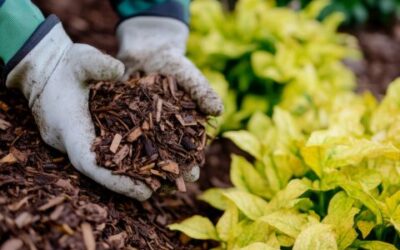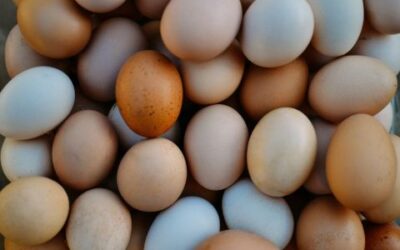Henniker Farm & Country Store Supplies Care & Experience to the Community
When Grace Houghton’s horse Sky was having difficulty eating after an operation, she went looking for answers at her local Henniker, New Hampshire farm store.
Sky had been hospitalized for treatment of a strangulating small intestinal lesion. Sky initially recovered well after surgery, but a diagnosis of post-operative ileus followed soon after. The condition, in which the small intestine lacks normal motility and secrets excess fluid that accumulates and backflows into the stomach, required a nasogastric tube. Sky’s throat was raw and swollen from the constant passing of the tube, and he just didn’t have an appetite for hay.
 At Henniker Farm & Country Store, Becca Johnson recommended a high protein chopped alfalfa forage made by Lucerne Farms for Sky. The chopped forage was better tolerated, and it helped Sky add weight post-surgery. Sky had lost almost 75 pounds, so maintaining and increasing weight gain is a major concern. “In Sky’s case we needed to keep forage consumption up, but long stem forage wasn’t the vet’s wishes,” said Johnson. She knew the chopped forage was a good alternative. Sky’s vet also had also requested Sky be fed a high protein forage. Due to the cold weather, soaking cubes was not an option, and Johnson finds cubes and pellets to dusty and keeping low dust is important. She automatically thought of Lucerne’s Alfa Supreme.
At Henniker Farm & Country Store, Becca Johnson recommended a high protein chopped alfalfa forage made by Lucerne Farms for Sky. The chopped forage was better tolerated, and it helped Sky add weight post-surgery. Sky had lost almost 75 pounds, so maintaining and increasing weight gain is a major concern. “In Sky’s case we needed to keep forage consumption up, but long stem forage wasn’t the vet’s wishes,” said Johnson. She knew the chopped forage was a good alternative. Sky’s vet also had also requested Sky be fed a high protein forage. Due to the cold weather, soaking cubes was not an option, and Johnson finds cubes and pellets to dusty and keeping low dust is important. She automatically thought of Lucerne’s Alfa Supreme.
Alfa Supreme Forage was introduced in small amounts and Sky seemed to have a favorable appetite for it. Grace continued to offer the forage as Sky’s tolerance improved, and combined with the significant nutritional support, it seemed to fit the bill. She continued to use the forage as a normal nutritional support in his diet, making a difficult time for Sky a better, and lifting a weight off the shoulders from his concerned owner.
An Invaluable Resource
Small feed stores like Henniker play a central role in the community of horse, poultry, pig – even dog owners. Henniker Farm & Country Store isn’t just feed central. They hold educational seminars, stock locally-made items, keep horses year-round, re-house roosters and chicks in May, and sell mulch, soil and veggies in June. It helps that the owners and workers are experienced farm owners. Horse owners often come into the store confused about whether their horse is getting the nutrients it needs and how much they should be eating. Experience means better, more personalized assistance, and because the people behind the counter have a genuine investment in their customers, they devote more time with them than the typical large supply company. For starters, they provide hay sample analysis and diet balancing at no cost to help ensure horses are getting the diet they need. And, of course, they have Becca Johnson.
Johnson grew up on a farm raising dairy, working steers, horses, poultry and swine. She and her siblings were involved in the 4-H working steer program for most of their youth. When the opportunity came in 2003, her parents, Kevin & Peggy Mock, purchased the store from the previous owners. It is family-owned and run by her parents, sister Jess, Brother Jeff, Uncle Ron, her husband Corey, and five non-related employees, Maddy, Tom, Chris, Justin and James. Johnson said that it has grown tremendously over the last 15 years. “We have met some wonderful people,” she said, “and we have been so privileged to service a great community.”
In Henniker, many horse-owning customers are those with backyard barns who try to ride on the weekends. Cost is not as important as it is for those at the farm’s larger performance horse barns, and customers don’t mind spending the extra money on top shelf and higher priced products as long as their horse is getting what it needs to be happy and healthy. Johnson regularly fields questions about how to add weight, getting senior horses though the winter months, and dealing with insulin resistance and laminitis-prone horses. Many customers feed a high grain-based diet to achieve vitamin and mineral intake and regulate calories. Johnson urges owners toward the smallest grain ration possible while still maintaining a balanced diet – as many feedings as possible, lots of hay, and free-choice if grass is minimal. She often recommends slow feed hay nets to keep horses busy and slow their forage intake.

Alfa Supreme is a regular recommendation for Johnson’s customers. (It was why Grace, Sky’s owner contacted us at Lucerne Farms about her success with the product during Sky’s health challenges.) Alfa Supreme is dehydrated, chopped alfalfa hay that provides a quality source of digestible protein with naturally occurring vitamins and minerals, making it an excellent choice for brood mares and growing horses. Chopped forage in general is helpful for horses with dental issues or those who tend to bolt or choke, since it slows eating. Johnson recommends it to customers with poor quality hay diets, horses that need to gain weight, or horses with respiratory issues. It is also a go-to product for customers who are ulcer prone, she said, and those who want to feed alfalfa but don’t want to feed pellets or cubes. Its high digestibility was a perfect choice for a horse with digestion issues and a post-operative horse, like Sky.
Choosing Products
Johnson works with her customers and vets as much as possible, balancing her knowledge and experience with veterinarian input and real-world results. While she defers to the vet’s requests, if she disagrees, she’ll contact an equine feed nutritionist that they work with regularly to get a third opinion. The week we spoke, a customer came in concerned about their insulin resistant horse’s diet on advice it should be changed. The horse was in his late twenties, colic prone, and with Cushing’s, but he was holding his weight and looking great, the customer said. Johnson broke down what he was currently feeding and what he was being advised to feed, showing him his NSC, or non-structural carbohydrate percentages, would be increasing from 14.6 to 20.5, and he would have to feed twice the volume and he would be feeding lots of oat and corn. Armed with that information, he chose to keep his current feed plan and walked away grateful that someone was willing to spend that kind of time talking with him about his horse’s needs.
Feedback from Johnson’s customers is as valuable as her own experience when it comes to feed recommendations. Her own horse, a 5-year-old quarter horse who bolts her food, eats chopped forage to slow feeding and prevent choking. She has tried all the products and monitored the results, so she can better recommend products to her customers. “I want to know if it’s palatable with my horses, if I got the results they say I should, and if the product is worth the cost,” she said. That way she can bypass the research and the trouble of searching through bags and labels with the customer, and problem-solve quickly. She follows up over the next few months whenever possible to see if a customer’s results are the same as what she predicted.
“I try to create a relationship with customers through their animals,” she said. “It takes very little of my time to ask how the animal is doing with its diet or how it likes products. It allows me to learn what works and doesn’t work on multiple horses and, most importantly, if it’s palatable to picky horses,” she said. “If I see positive results, I will recommend the product more often. This has a huge impact on how much of what products we sell.”
Henniker Farm & Country Store is located on Bradford Road, off Route 114 in Henniker, NH. You can visit them online at www.hennikerfarm.com.

Postscript: We were sad to hear that Grace lost Sky in March due to complications from surgery.
Sky was an excellent horse to his caring owner and will be missed by his immediate and extended family.




